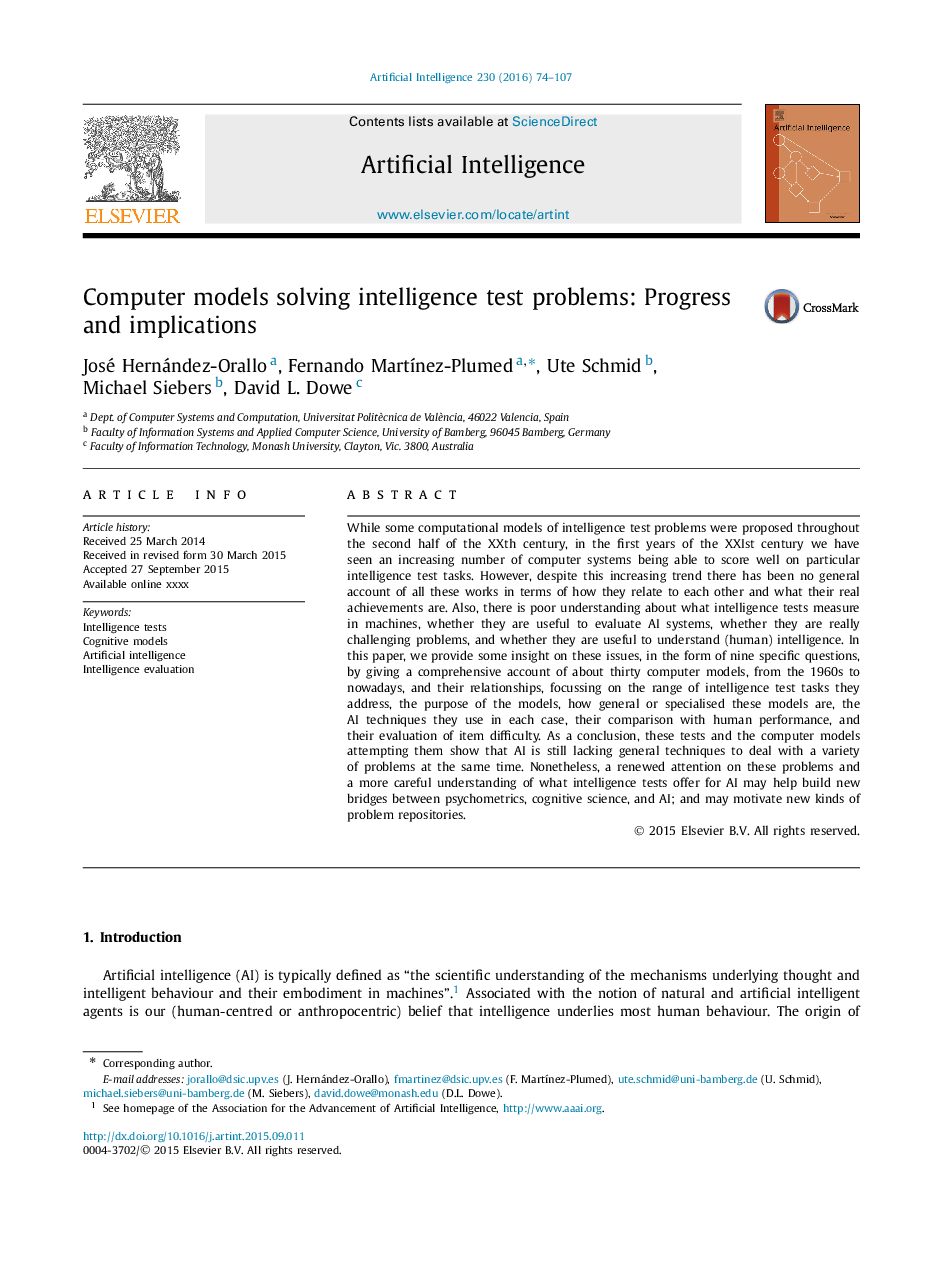| Article ID | Journal | Published Year | Pages | File Type |
|---|---|---|---|---|
| 6853173 | Artificial Intelligence | 2016 | 34 Pages |
Abstract
While some computational models of intelligence test problems were proposed throughout the second half of the XXth century, in the first years of the XXIst century we have seen an increasing number of computer systems being able to score well on particular intelligence test tasks. However, despite this increasing trend there has been no general account of all these works in terms of how they relate to each other and what their real achievements are. Also, there is poor understanding about what intelligence tests measure in machines, whether they are useful to evaluate AI systems, whether they are really challenging problems, and whether they are useful to understand (human) intelligence. In this paper, we provide some insight on these issues, in the form of nine specific questions, by giving a comprehensive account of about thirty computer models, from the 1960s to nowadays, and their relationships, focussing on the range of intelligence test tasks they address, the purpose of the models, how general or specialised these models are, the AI techniques they use in each case, their comparison with human performance, and their evaluation of item difficulty. As a conclusion, these tests and the computer models attempting them show that AI is still lacking general techniques to deal with a variety of problems at the same time. Nonetheless, a renewed attention on these problems and a more careful understanding of what intelligence tests offer for AI may help build new bridges between psychometrics, cognitive science, and AI; and may motivate new kinds of problem repositories.
Related Topics
Physical Sciences and Engineering
Computer Science
Artificial Intelligence
Authors
José Hernández-Orallo, Fernando MartÃnez-Plumed, Ute Schmid, Michael Siebers, David L. Dowe,
